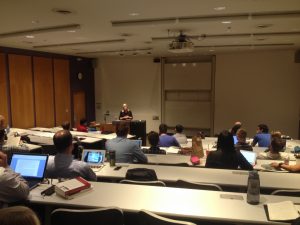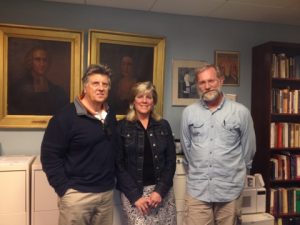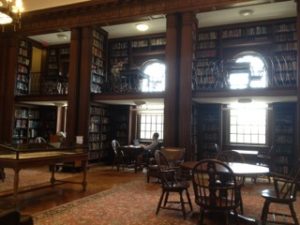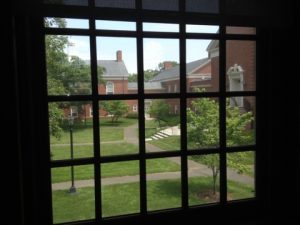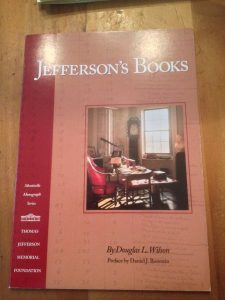Some of you know that we came to Yale so Doreen could begin to do intensive research on Sarah Edwards, wife of Jonathan. Most of you know that Doreen’s first book is on the ministries/marriages of Jonathan/Sarah Edwards, George/Elizabeth Whitefield, and John/Molly Wesley. Doreen’s book is used as a required text by a professor of history and theology at Dallas Theological Seminary (DTS). It is gratifying to hear how the students appreciate Doreen’s hard work. Here is recent picture of Doreen speaking at DTS.
We usually stop in Dallas on our treks back east. Our wonderfully encouraging friends, Bill and Helen Reeves, welcomed us into their lovely abode on our way to New Haven, CT.
Our first big stop was in Knoxville, Tennessee. Doreen’s sister and brother-in-law live there. I was reminded that we were in the Bible belt when I stepped into the restroom of a Christian bookstore. I guess several biblical truths could work like “Go…and Make Disciples!”
We made it safely to Yale. Here is Dr. Ken Minkema, the Director of The Jonathan Edwards Center at Yale. We had a terrific and productive time with him.
I close this log with a few pictures from one of our study locations. These are from the Yale Divinity library.
A peek out our window…

